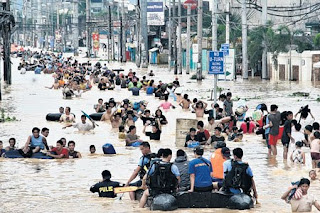

The world's forests have many values. They are home to more than half of all species living on land. Forests also help to slow global warming. Trees help by taking carbon dioxide from the air and storing it as carbon in their wood. They reduce the greenhouse effect. Even after the trees are cut down and used as lumber, the wood continues to store carbon and keep it out of the atmosphere.
Forests help regulate local and regional rainfall. Additionally, forests provide crucial sources of food, medicine, clean drinking water, and immense recreational, aesthetic, and spiritual benefits for millions of people.
Forests are sources of wood products. In many parts of the world, forests are being rapidly cleared for agriculture or pasture, destructively logged and mined, and degraded by human-set fires. The burning of trees releases the stored carbon back into the atmosphere. Together, these activities contribute about 25 percent of annual human-caused emissions of carbon dioxide - the principal greenhouse gas - and drive the decline and extinction of forest species.
 THINGS TO DO DURING TYPHOON
THINGS TO DO DURING TYPHOON


